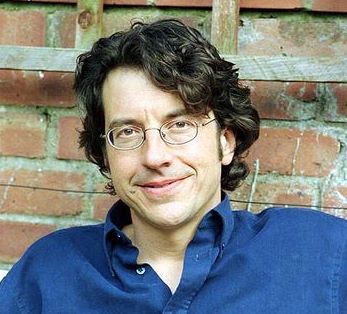There’s a loneliness epidemic, says George Monbiot, and it’s killing as many people as smoking or obesity. That’s why he’s going on tour – to bring people together with his stirring songs, then a party in the pub.
By Geroge Monbiot for The Guardian
Two years ago, I wrote a column for the Guardian in which I argued that what distinguishes our age from those preceding it is an epidemic of loneliness. Throughout human history, we have been hypersocial animals, dependent on each other for both physical and psychic survival. Thomas Hobbes’s claim – that our natural state is a war of “every man against every man” – is a myth proposed by someone whose understanding of human evolution was confined to the book of Genesis. But the myth is now being realised through the religion of our time: a celebration of extreme individualism and universal competition. The resulting loneliness, I argued, is a deadly condition, which kills as many people as smoking or obesity.
To my astonishment, the article exploded, and the ripples can still be felt today. A documentary it inspired, called The Age of Loneliness, aired recently on BBC1. Several publishers asked me to write books on the topic, but I could think of nothing more depressing than spending three years sitting on my backside, documenting social isolation. There was plenty I wanted to say on the topic. But how?
A few weeks later, I dashed out to buy some screws from a hardware shop. Ahead of me in the queue was an elderly woman. She lent on the counter, dithering about what she wanted and trying to engage the sales assistants in a riveting conversation about her state of health. Stuck behind her, I quietly fumed: it seemed as if she would never leave.
But as I cycled home, and my frustration ebbed away, I saw what should have been obvious: here was a person who seemed desperately lonely. “Where’s your empathy?” I asked myself. “Isn’t that what you were writing about?” What if that conversation was the only one she would have all day? I felt guilty about my feelings in the shop.
When I returned to my desk, I began dashing out a rough poem about a woman with little to keep her company but memories, who goes to the shops in the hope that she might talk to someone, but discovers that the tills have been replaced with automatic checkouts. As I wrote, it seemed to me that it was trying to become something else: a ballad. Suddenly I knew what I wanted to do: I wanted to write an album.
Weeks after I emailed my first song sketch to Ewan, I found an audio file in my inbox … I was like a child at Christmas
There were just a couple of minor hitches. I can’t read music, I don’t play an instrument and my singing is banned under international law. But I knew who to ask. I first heard Ewan McLennan while listening to Late Junction on Radio 3, in 2011. I was transfixed by his voice, his playing and what seemed to be an almost supernatural ability to find the heart of a song. He was just 25.
I bought his first album, Rags and Robes, and listened to it over and again. Three years later, I heard him interviewed by Mary Ann Kennedy, whose programmes I’ve followed since she began broadcasting on Radio Scotland. He was relaxed and funny, politically engaged and plainly fascinated by the roots and text of songs and poems.
I did something I have seldom done: I sent him a fan letter. I invited him to a talk I was giving in his home city, Bristol. He came and over dinner afterwards, we clicked. So, a few months later, with some trepidation, it was to him that I sent my idea of collaborating on a themed album.
To my delight, he agreed. I would start by thinking up a story and writing a rough sketch, which might incorporate some potential hooks, rhymes and choruses. I would send it to him on the understanding that he could do whatever he liked with it. I did not try to write to his style, as I knew he would take what he wanted and make the song his own.
I wasn’t wrong. A couple of weeks after I emailed the first sketch to him, I found an audio file in my inbox, and opened it with the excitement of a child at Christmas. It was wonderful – he had turned my base metal into gold. The songs he sent back to me were heart-wrenching, capturing sensations I have long struggled to express.
The album is a mixture of dark shades and light: sad ballads and stirring anthems. We want to use it as a means of not only talking about loneliness, but, in a small way, addressing it. With advice from charities working on the issue, we are designing our gigs to try to bring people together. I will talk about the themes and Ewan will perform the songs. We will encourage people in the audience to talk to each other, then it will end up with a party in the nearest willing pub. Music naturally makes connections – we want to take it a step further.
In one respect, the album is already succeeding, as the collaboration has relieved the usual solitude in which we both work, making our lives less lonely. I hope it has the same effect on other people.
- Breaking the Spell of Loneliness is released on 14 October by Fellside Records. Tour dates: monbiot.com/music/










